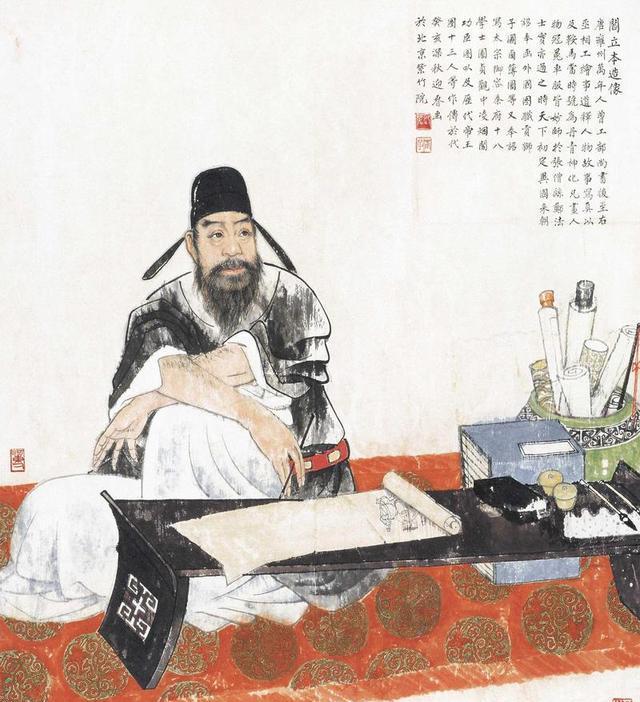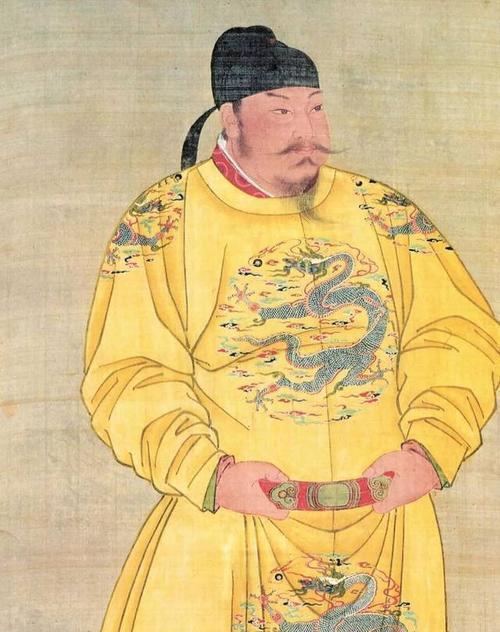Yel ü Bei (899-937), also known as Yel ü Tuyu and given the name Li Zanhua, was the eldest son of Liao Taizu Yel ü Abaoji, the eldest brother of Liao Taizong Yel ü Deguang, and the father of Liao Shizong Yel ü Ruan. Below, the history encyclopedia editor will bring you a detailed introduction. Let’s take a look together!

From a young age, he was intelligent and eager to learn, and deeply loved and valued by Yelv Abaoji. In 916, he was appointed as the Crown Prince. In 926, he was conferred the title of King of Dongdan and called the ‘King of the People’. After the death of Emperor Taizu in 926, Yel ü Deguang succeeded to the throne as emperor. In the third year of Tianxian (928 AD), Dongdan Kingdom moved south and elevated Dongping to Nanjing. At the same time, Yel ü de Guang exerted control and surveillance over Yel ü Bei. In 930, Yel ü Bei abandoned his country and fled to the Later Tang Dynasty. In 936 AD, a coup occurred in the Tang Dynasty, and Yel ü Bei was killed and buried in Xianling.
In 947, Yelud Deguang passed away. Yel ü Ruan, the eldest son of Yel ü Bei, eventually regained the throne and posthumously honored Yel ü Bei as the Emperor of Rang State, with the temple name Yizong.
In 899 (the second year of Guanghua reign of Emperor Zhaozong of Tang Dynasty), Yelv Abaoji’s eldest son Yelv Bei was born.

After eliminating political enemies and obstacles to proclaiming himself emperor, on the first day of the second lunar month in the tenth year of his reign as Khan (March 7, 916 AD), Abaoji declared himself emperor and established the Great Khitan State (later renamed Liao State), renamed the Yuan Shenshu, and became known as Liao Taizu. On the second day of the third lunar month in the same year (April 6, 916 AD), Yelv Bei, who was only eighteen years old, was crowned as the Crown Prince and became the heir to the throne of the Great Khitan Kingdom.
In 926 AD, after conquering the Bohai Kingdom, Abaoji renamed it “Dongdan Kingdom” and used “Ganlu” as his reign title. He adopted the allusion of the three talents of “heaven, earth, and man” and conferred the title of “King of the People” on Crown Prince Yel ü Bei, giving him the crown of the emperor. Because Abaoji’s own honorific title is “Emperor of Heaven” and Empress Shuluping is “Empress of Earth”, this established the noble status of Yel ü Bei as “below two people and above ten thousand people”.
In July of the first year of Tianxian (926 AD), Abaoji unfortunately passed away on his way back to the Khitan without informing him of his funeral arrangements. Upon receiving the tragic news of his father’s death, Yel ü Bei immediately set off to return to Liao. His mother, Shulvping, had already returned to Zigong West, and his younger brother Yel ü Deguang had already arrived at Xingzai. The rapid mourning of the two brothers means that there will be a struggle for the throne within the ruling group of the Liao Dynasty.
At this moment, Shu Luping, who held the great power of the Liao Dynasty’s military and played a decisive role in the issue of succession to the throne, decisively stepped forward and designated her desired successor with a broken wrist.
Crown Prince Yel ü Bei understood his mother’s thoughts and had no choice but to “ask the courtiers to make way for the empress dowager”. Leading the courtiers to plead with Shulvping: ‘The Grand Marshal (Deguang) has merit and is a human god, belonging to both domestic and foreign countries, and is suitable for governing the country.’ He took the initiative to request that the Khitan throne be given to his mother’s beloved younger brother.
At the end of the second year of Tianxian (927 AD), Yel ü Deguang ascended to the throne as Emperor Taizong of Liao.
Although Yelv Deguang succeeded to the throne as he wished, he was not at ease with his brother Yelv Bei. Not only did they monitor Yel ü Bei, but they also constantly tried to weaken the strength of his Dongdan kingdom. As a result, the relationship between brothers deteriorated and the conflict deepened further.
Yelv Bei’s situation was known by Emperor Mingzong of Later Tang, Li Siyuan. For political purposes, he sent someone with a secret edict to Yelv Bei. In 930 AD (the fifth year of the Tianxian reign), Yel ü Bei crossed the sea from Liaodong with his beloved concubine and precious books and fled to Later Tang, comparing himself to “Wu Taibo”.
Yelubei was warmly received by Tang after his arrival. Emperor Li Siyuan of the Later Tang Dynasty welcomed him with the emperor’s ceremonial guards and bestowed upon him the surname Dongdan and the name Muhua. Ruizhou (now Gao’an, Jiangxi) was renamed Huaihua Army and appointed as the Military Governor of Huaihua Army and the Observer of Ruishen and other prefectures. Later, he was given the surname Li and given the name Li Zanhua. He moved to Huazhou (now Huaxian County, Henan Province) and served as the military governor of Qianzhou (now Ganzhou, Jiangxi Province) from afar.
Although living in a foreign country, Yel ü Bei often misses his hometown and relatives. In 933 (the eighth year of the Tianxian reign), Emperor Mingzong of Tang, Li Siyuan, died of illness. His son Li Conghou ascended the throne less than half a year ago and was killed by Li Congke, Li Siyuan’s adopted son. Yel ü Bei believed that this was an excellent opportunity to attack Later Tang, and sent someone to secretly report to Emperor Taizong of Liao, hoping to take advantage of the internal turmoil in Later Tang to attack it. Yelv Deguang indeed led his army southward, but he was not invited by Yelv Bei, but by Shi Jingtang.
In 936 (the eleventh year of the Tianxian reign), Li Congke attempted to self immolate and summoned Yel ü Bei to join him. Yel ü Bei refused, and Li Congke sent the brave man Li Yanshen to kill Yel ü Bei. At the age of 38, a monk in Luoyang gathered Yel ü Bei’s body and temporarily buried it on a barren mountain slope. Later, Emperor Taizong of Liao reburied Yel ü Bei at his beloved physician, Wu Lushan, and posthumously awarded him the title of “King of Wenwu Yuan”.
In the first year of Datong (947 AD), Yel ü Ruan, the eldest son of Yel ü Bei, became the emperor and posthumously honored his father as the “Emperor of Rang State”. His tomb was called Xianling. During the reign of Emperor Shengzong of Liao, the posthumous title was changed to “Literature”. In 1051 (the 20th year of the Chongxi reign), Emperor Xingzong of Liao was posthumously honored with the title of Emperor Qinyi and the temple name Yizong, and posthumously honored with the titles of two queens, “Duanshun” and “Rouzhen”.


